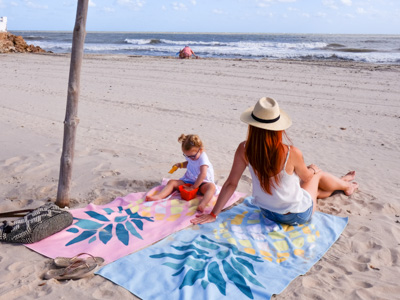14 budget travel tips
Have you heard of travelling on a budget but not sure where to start? Budget travel is a great way to save money when travelling, without compromising on your experiences. On the contrary. Travel on a budget will push you to have more authentic experiences that will stay with you for a lifetime. So without further ado, here are our top 14 tips for a budget travel:
1. Be flexible where and when you travel
It is not always possible, but a little flexibility goes a long way. Air ticket prices are constantly changing and with a bit of flexibility and research, you can snap yourself a bargain to places you could so far only dream of. Try to keep at least destination or dates open.
In online travel aggregators, set up special offer notifications for specific destination or dates, or best travel deals overall. Now just wait for your next trip to literally drop into your inbox. When that happens, book fast before someone else snaps it.
Another rule is that flights are cheaper mid week, and accommodation weekend rates are more expensive, so forget about weekend to weekend travel and try mid-week to mid-week instead. This will help you save money on flights and hotels. Travelling off season is another guaranteed way to save money with prices dropping dramatically.
2. Travel light with hand luggage only
Do you pack the kitchen sink only to spend your holidays in bikini, shorts and t-shirt? Air tickets without check-in luggage are by far the cheapest way to fly. Pack only multi-functional essentials that are easy to mix and match, weigh less and don’t take up space. You can always hand-wash some items when there. And remember – if you forget something you think you need, the chances are you will manage without or you can buy it when there if necessary. Travelling light is liberating and a great way to save money when travelling. Great items to take are multi-functional quick-drying towels, ultra-thin travel mats, multi-purpose soup bars, and lightweight clothing from materials like linen, viscose, functional microfiber or merino wool.
3. Pick a budget destination
Cheap air ticket and cappuccino for 15 euros? It happens. Some countries are just expensive. You can fly low cost to Scandinavia, but unless you plan to camp, cook and hitchhike when there, it might be more expensive than flying to Asia. Before booking a ticket, check out local prices. Travel blogs and the Internet in general are a great source of information. Consider how you plan to travel and live when there, and make an informed decision. It you want to eat out and splash on some local experiences, budget destinations are a better way to save money.
4. Use online travel portals
There are many online travel agencies aggregating discounted travel tickets, accommodation and even car hire from multitude of providers. Also some travel bloggers and influencers regularly publish best travel deals found online. Use these resources when travelling on a budget, especially when you are flexible where and / or when you go.
Kiwi and Skyscanner are two budget travel booking options, but many more exist. You can search ‘anywhere’ for destination and instead of an exact date, tick those months you want to travel. The wider your search, the higher chances of the best budget travel offer. Check out the search results and pick your fav, or set-up price alerts and wait for better deals.
Just like air travel, accommodation booking agencies exist. Register on booking.com and other portals and choose from a wide range of accommodation, including hostels. Many hostels offer private rooms on a budget so make sure to include them in your search. Each accommodation booking generates points, that determine your membership status and discount you get on top of the best price. Another great way to save money when travelling is using Airbnb. And if you really are travelling on a shoestring budget and welcome new experiences, try Couchsurfing or Bewelcome.org. Here you can stay for free with locals, sleeping on their couch, in a private room or even on the roof, making new friends and immersing in local culture. All that in exchange for sharing more about your own culture.
5. Join loyalty schemes and collect miles and points
Most, if not all airlines and hotel chains have loyalty schemes, and are also part of a wider alliance. Sign up and collect air miles and accommodation points, that you can then exchange for free flights and stays at any of the alliance partners. This is a great travel saving tip especially for frequent travellers.
6. Do not book too much in advance
It is not always true that buying first minute is the best deal. Sometimes it is better to wait. Cruise companies and local tour operators often severely discount their prices at the very last minute, allowing you to travel for a fraction of the original price. Air tickets are statistically cheapest 3 months before departure, but you can also find great deals closer to the departure date and last minute. Just watch out for special offers and don’t forget to set those price alerts.
7. Avoid airport money exchange
Exchange rates at airports are by far the worst you can get anywhere. Ever. Similarly, avoid Trevelex and similar fee-based cash machines. Their exchange rates and transaction fees will make your eyes water. I get it. Travelling to a new place without the safety of pre-arranged local currency is unnerving, but don’t let that rattle you. Most airports have cash machines operated by larger local banks, offering better conditions. Plus nowadays, it is possible to pay by card literally everywhere, so unless absolutely necessary, find the right place to withdraw those local coins.
8. Always withdraw and pay in local currency
Cash machines, restaurants and shop card payment terminals can sometimes offer you payment in your own currency. When using the cash machine, it means that the local bank will convert the withdrawal amount into your home currency, using their own exchange rate, and give you the local currency. Never use this option. It is an extra service so not only will you get worse exchange rate, but you will also likely pay fees. Always pay in local currency and let your own bank do the conversion, generally using much more favourable rates. Also only withdraw what you think you will need. The last thing you want, is at the end of the trip having large amounts of local money and changing them back.
9. Avoid card payment fees
Before you travel, check with your back for any potentially hidden fees for using your card abroad. Personally, when travelling in EURO-zone, I am using my German bank card, in the UK I use my UK card and elsewhere I use my Hong Kong issued card to avoid bank fees. If your bank charges for card usage abroad, and you prefer not to have multiple accounts in different countries, use Revolut.com or similar cloud-based solution. Revolut caters to your financial needs abroad, where you get a Revolut card delivered free anywhere in the world. Using mobile app, you then charge this card from your home bank, withdrawing money anywhere in the world free.
10. Eat and shop like locals
Shops and restaurants in tourist hot spots, where hundreds of unsuspecting travellers land every day on their doorstep, have no motivation to offer a good quality for reasonable prices. They have a good spot so customers will come in regardless. It is also this kind of places where you should not expect authenticity. Whilst convenient, you are guaranteed to overpay and leave disappointed, robbing yourself of a truly local experience. Food and local customs are a big part of travel so do it justice and pay less. Ask for recommendations, walk around and find places where locals eat and shop, try food markets and local fairs and use apps like Yelp, OpenRice and Google.maps with local reviews and recommendations. The cheapest way to eat is of course to cook yourself, buying ingredients in local markets and stores. Stay clear from TripAdvisor – it is a platform by tourists for tourists so expect no hidden gems there.
11. Visit free attractions
Not everything costs money when travelling. Visiting free cultural, architectural and natural highlights is a great way to travel on a budget. It pays to do a little planning ahead. Check out some You Tube videos, read travel blogs, search for ‘free attractions in …’ or ‘free to-do in …’ and ask locals for their recommendations. Even paid attractions sometimes have dedicated days and times with free admission. Do your research. Some of my favourite memories were free. It is sunset over Taipei, street art in Penang, horse racing in Mongolia, Galleria Umberto in Naples and long hammock chats in a hostel in Luang Prabang.
12. Travel like a local
Taxi and an organised tour are convenient, but more authentic and definitely cheaper way to travel is walking around or using public transport. You are guaranteed to see more and pay less or nothing at all. Especially when most places on tour itineraries do not require a guide. Ask locals, check out the Internet, pop into a local bus station and go. You will find that public transport is fun at best and experience at worst and it is always cheaper. Having said it, it might take longer so budget with more time. Try offline maps to plot your own itinerary using apps like Maps.me . That way, you always know where you are and where you need to go even without online connection. Also cycling and biking around are great ways to explore a place on a budget.
13. Buy a local SIM card
This is especially useful on longer trips or where high roaming charges apply. Investing in a local SIM card will keep you within budget when confirming bookings, communicating with hosts and agencies, searching for information, or uploading your travel pics to Instagram. I always buy a phone with 2 SIM cards functionality. This way I temporarily enable foreign SIM without having to take my Czech SIM out. After the trip I simply take it out and gift it to someone at the airport to top up and go.
14. Experience more for less
Group tours can lure you with their glossy leaflets, but they tend to be more expensive and less authentic way to experience a country. Most larger places offer free tours, where you can contribute only if happy with the tour. How much is up to you. Simply type ‘free walking tour‘ or ‚free tour‘ and the city you’re at into your search engine and pick your fav. The other benefit of such tours is their authenticity, more original itinerary and personal approach. And thanks to the correlation between quality and pay, they tend to be much better quality. But if you insist on professional paid tours, do not book in advance. Get the lay of the land first and you will find that the offers and prices on the ground are much more reasonable, and tour operators are open to discounts especially when booking more than one experience.







Leave a Reply